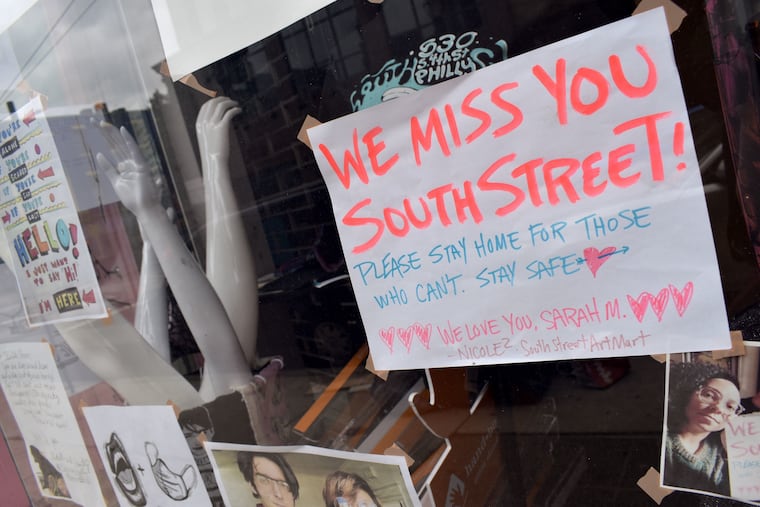Without advocates in City Hall, Philly’s small businesses are unfairly expected to white-knuckle it | Opinion
Where are Mayor Kenney and City Council?

It seems like every day now you hear about another classic Philly establishment that couldn’t outlast the pandemic, and more and more small-business owners are saying they may have to call it quits this winter.
It didn’t have to be this way, and it still doesn’t.
While the U.S. federal government has uniquely mismanaged the economic policy response to the pandemic, governments in other wealthy countries have moved swiftly to head off mass unemployment, keeping workers and employers whole by paying businesses to stay closed who cannot operate at full capacity. That kind of emergency intervention is essential for industries like hospitality, entertainment, and personal services that are least adaptable to the public health regulations needed to slow the virus.
Federal support for economic recovery has been too little, too late, and too constricted, both for individual businesses and local governments, whose budgets have been rocked by the fall off in economic activity. Consequently, Philadelphia is in for very difficult budget conversations over the next couple of years.
» READ MORE: From wage taxes to red tape, here’s why Philadelphia is one of the hardest cities to do business
Although Philadelphia city government is limited in what it can do to stimulate an economic recovery all on its own, it’s also true that the city’s small-business sector — which describes 99.7% of area companies — is noticeably lacking a political champion in City Hall at the moment. Despite some heroic efforts by a lot of midlevel staff, particularly in the Commerce Department, and a few Council hearings, this isn’t a cause that’s very high on the priority lists of any of our elected leaders, and small-business owners are noticing.
Unfortunately, it seems the Kenney administration and City Council are expecting small businesses to white-knuckle it until the Biden team perhaps comes through in February or March with more federal stimulus — no sure bet if Republicans hold their Senate majority.
City Council is planning to break for the holidays after two more meetings without having taken significant action this fall to aid small businesses, excepting the important extension of the temporary rules for outdoor street seating through the end of 2021. Council took a don’t-call-it-a-summer-break in the middle of a 100-year global catastrophe, and there’s little to suggest that anyone is planning a substantial political push around this going forward.
Likewise, the mayor also has been fairly invisible on this front. The administration’s most assertive effort to date has been the allocation of $38.6 million of CARES Act funding to small-business loans and grants. Beyond that, however, very few of the mayor’s public appearances have been pointed at the challenges faced by our small businesses, and there’s little sense of what the administration’s recovery initiatives might entail in 2021, and certainly nothing anybody can plan around.
» READ MORE: Six-week shutdown could mean a ‘year without Christmas’ for Philly businesses
The problem also goes deeper than these emergency considerations. We’ve long known that Philadelphia is a difficult place to start, sustain, or grow a business due to a constellation of bad policies: an upside-down tax system, overly discretionary approval processes, excessive wait times, and a political culture that’s indifferent to fixing these problems despite a rhetorical focus on growing jobs in the abstract.
Anyone can look good buoyed by years of strong revenue growth enabling an ambitious and expensive agenda. It’s when times are hard that we see who is up to the task of doing the hard, boring, municipal work that must be done: remedying long-standing problems with government culture and processes impacting small business, and setting the table for more ambitious tax reform to position Philly for post-pandemic economic growth.
Municipal government may not have all the tools to solve this crisis without much more federal assistance, but the urgent need for federal action also doesn’t absolve our local government of the need to do more with the limited tools we have.
Alison Perelman is the executive director of Philadelphia 3.0. Jon Geeting is the engagement director of Philadelphia 3.0.